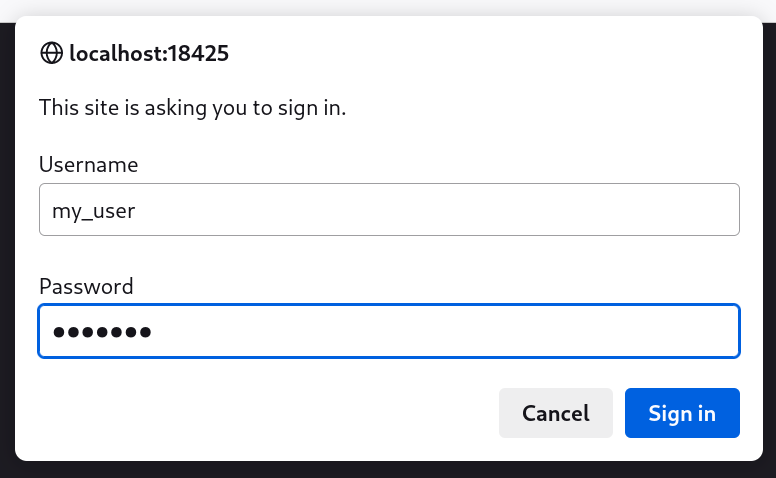Authorization
festivald has a Basic access authentication option in its configuration, with a username + password setup.
An optional bypass is available on specified JSON-RPC methods, REST resources, and documentation.
If authorization is enabled, festivald will only process connections to it that have the "authorization" HTTP header with this username and password (unless specified in the bypass options).
TLS must be enabled for this feature to work or festivald will refuse to start.
However, there are cases where authorization without TLS is okay (reverse proxy, Tor Onion Service, etc). In these cases, the confirm_no_tls_auth option will allow authorization without TLS.
If festivald is started on localhost (127.0.0.1), it will allow authorization without TLS as well.
authorization can either be set in the config file or passed via a command-line flag.
Syntax
The username & password syntax is specified in RFC 7617.
The "authorization" value must be:
- The username
- Followed by a single colon ":"
- Then the password
For example:
my_user:my_pass
A request including this information looks like:
curl -u my_user:my_pass https://127.0.0.1:18425
or the equivalent wget command:
wget --user my_user --password my_pass --auth-no-challenge https://localhost:18425
or the equivalent festival-cli command:
festival-cli -u my_user -p my_pass https://localhost:18425
Alternatively, you can input an absolute PATH to a file festivald can access, containing the string, e.g:
authorization = "/path/to/user_and_pass.txt"
In this case, festivald will read the file and attempt to parse it with the same syntax, i.e, the file should contain:
my_user:my_pass
RFC 7617
Note that curl, wget and festival-cli all follow RFC 7617, as in, they craft their HTTP authorization header to be:
Basic <user:pass in base64>
So these commands:
# Curl
curl -u user:pass https://localhost:18425
# Wget
wget --user=user --password=pass --auth-no-challenge https://localhost:18425
# festival-cli
festival-cli -u user:pass https://localhost:18425
sends this as the HTTP authorization header:
Basic dXNlcjpwYXNz
If you are creating a client for festivald, you must do this for authorization as well.
Web Browser
If connecting to festivald via a web browser, you will receive a visual prompt for authorization:
